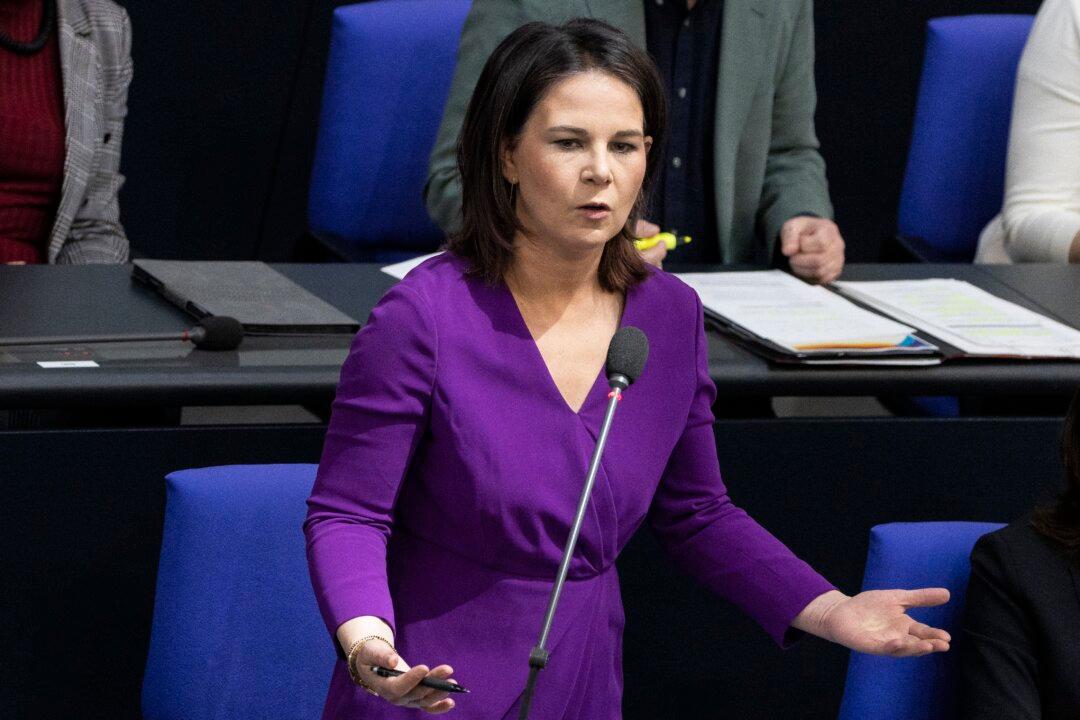BERLIN—German Foreign Minister Annalena Baerbock on Wednesday described parts of her recent trip to China as “more than shocking” and said Beijing was increasingly becoming a systemic rival more than a trade partner and competitor.
The blunt remarks followed Baerbock’s visit to Beijing last week where she warned that any attempt by the Chinese communist regime to control Taiwan would be unacceptable.





